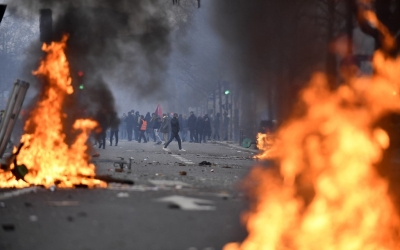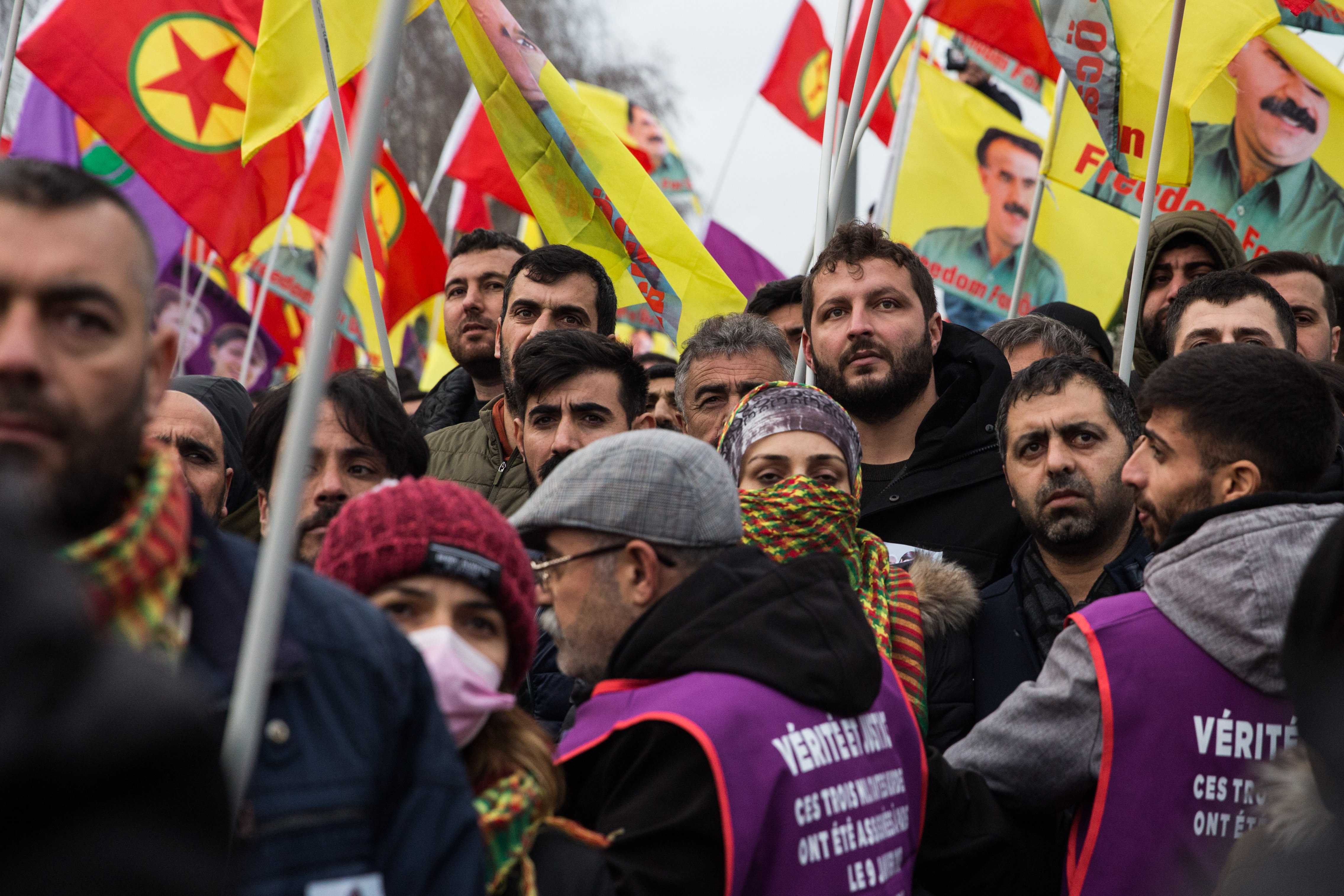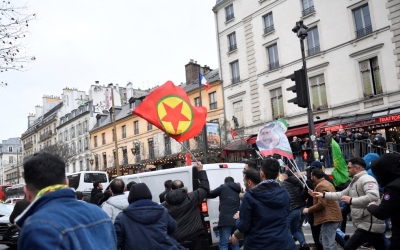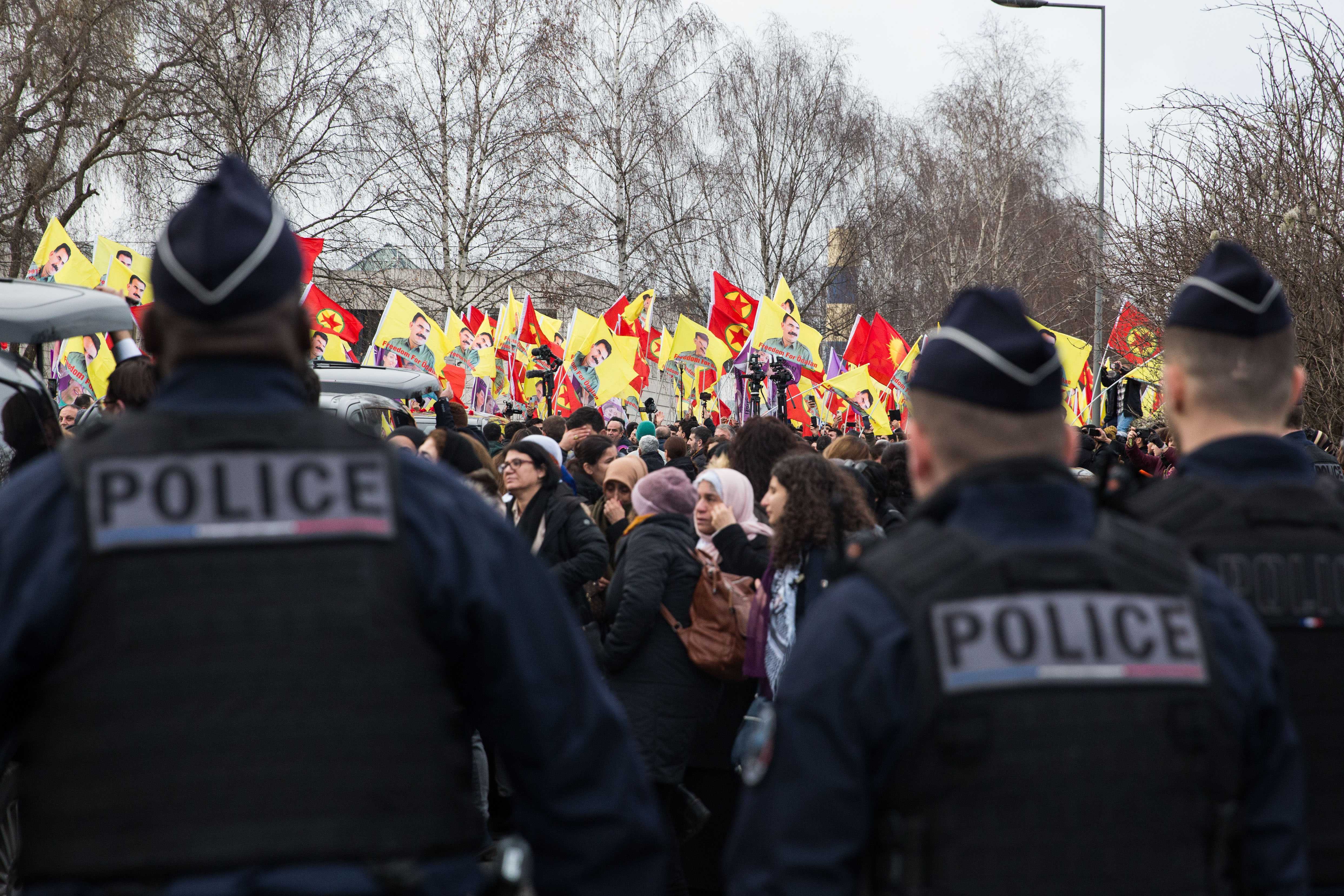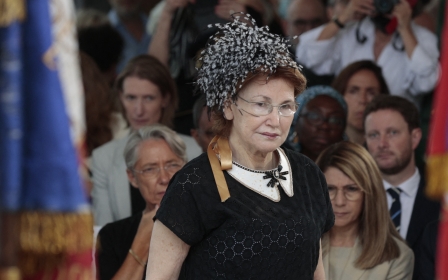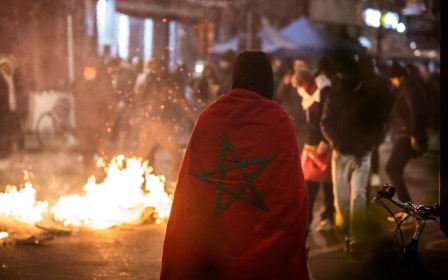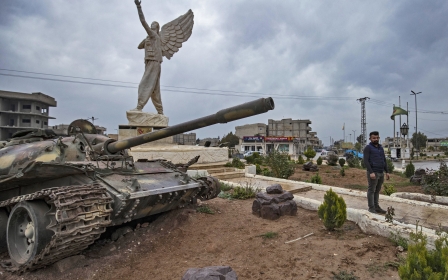France: Kurds from across Europe bury three killed in Paris attack
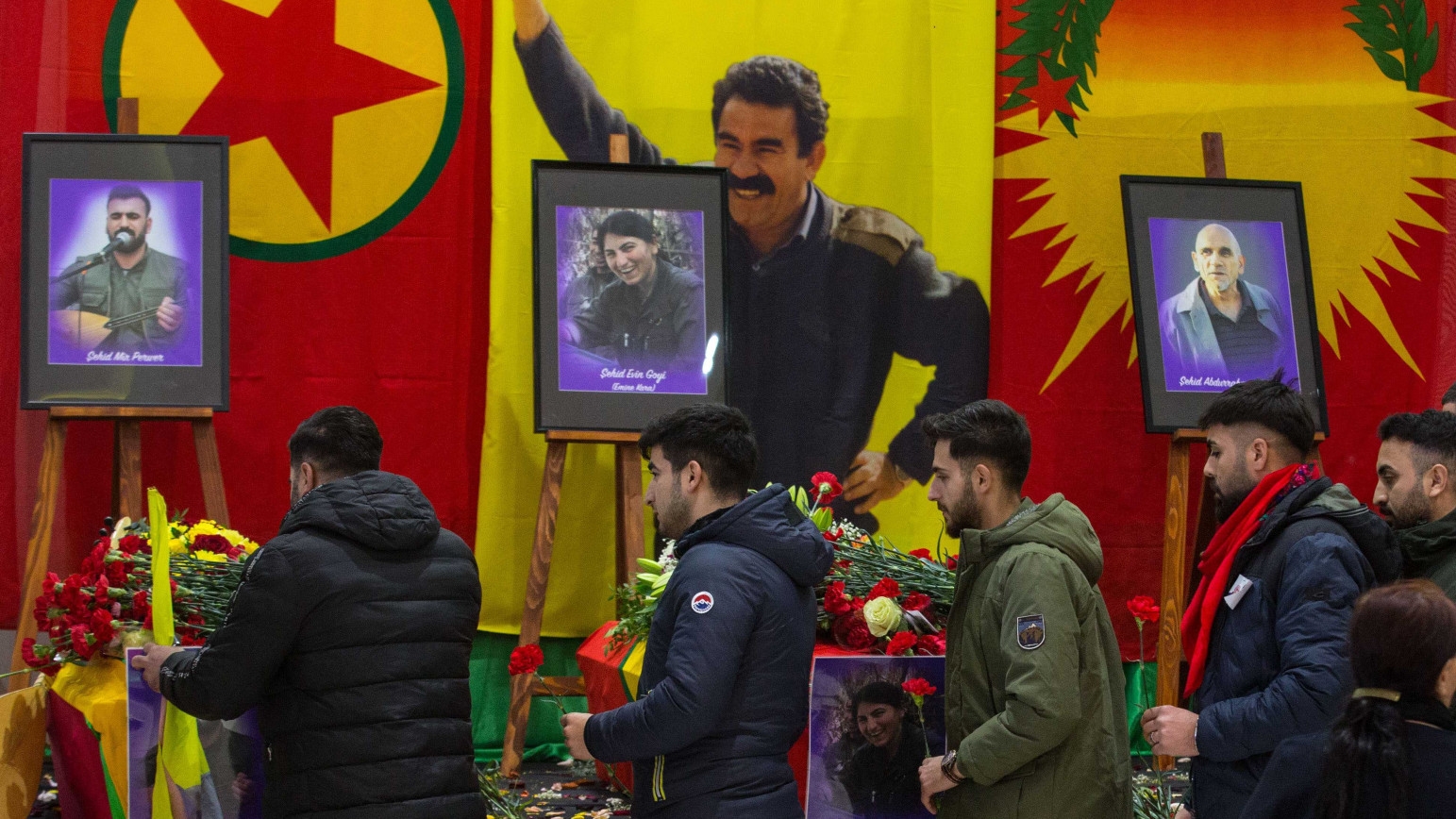
Several thousand Kurds from across Europe descended on the Paris suburbs on Tuesday to pay their respects to three of their own killed in late December in a racist attack.
Tears and cries of "Martyrs live forever!" greeted the coffins in Villiers-Le-Bel, north of the French capital, wrapped in the flags of the Kurdistan Workers' Party (PKK) and the Kurdish-controlled Rojava territory in northern Syria.
Gunman William Malet killed two men and one woman in a 23 December attack on the Ahmet Kaya community centre in Paris's 10th district.
His victims were Abdurrahman Kizil, singer and political refugee Mir Perwer, and Emine Kara, a leader of the Movement of Kurdish Women in France.
Arrested after the shootings and formally charged on 26 December, 69-year-old Malet told investigators he had a "pathological" hatred for foreigners, wanted to "murder migrants", and had “acted out of racism”, prosecutors said.
Malet, a retired train driver, had a violent criminal history and had just left detention over a previous incident.
"I didn't know them, but they are kin, they are part of my family forever," a young man who called himself Amed and didn’t give a surname told Middle East Eye.
Amed and his family took their places in the guard of honour leading the coffins.
A huge crowd, many crying, followed the funeral on giant screens erected in the car park.
Inside, the three coffins were surrounded by wreaths beneath a portrait of imprisoned PKK leader Abdullah Ocalan.
Kurds came from across France, Germany, Belgium and Italy for the event, according to organisers.
"It was unthinkable not to be here,” Yacine, who came from Bordeaux in France’s south-west, told MEE, “to bury our loved ones and demand justice.
“France has the opportunity to shed light on this killing and we do not want Paris to be the capital of impunity, but of justice. If it does not deliver justice, France becomes guilty.”
'Kurdistan will live'
Tuesday's funeral recalled another held in the same room almost exactly 10 years ago after three female Kurdish activists linked to the PKK were shot dead, also in Paris' 10th district.
Portraits of the three stood next to pictures of the faces of those killed in 2013. In the front row, the relatives of the six people sat sobbing.
One by one, relatives then the other attendees took a moment in front of the coffins. Xiyal, 33, left the room in tears.
“Mir Perwer was a friend of my partner and a friend of the whole community. Everyone really appreciated him, he could not practise art freely in Turkey, so he came to continue with his love of music here in France, where he was killed,” she told MEE.
“Today has been too much drama. The Kurds are fed up. But wherever it is, we won't surrender. As long as there are Kurds, Kurdistan will live.”
Many Kurds in France's 150,000-strong community refuse to believe Malet acted alone, calling his actions a "terrorist" attack and pointing the finger at Turkey.
A French investigation into the 2013 murder, which reportedly honed in on a Turkish ultranationalist close to his country's intelligence services (MIT), has never come to fruition, a Democratic Council of Kurds in France (CDK-F) spokesperson told MEE.
"The situation remains at a standstill. Documents were classified 'Secret-Defence' in France, proof that this is stuck at the highest level of the state."
The suspect died of cancer in pre-trial detention.
More recently, an April attack in which men were beaten with iron bars at a Kurdish cultural centre in eastern French city Lyon was blamed on members of the Turkish ultra-nationalist Grey Wolves group, which has since been banned.
The PKK, which has waged an almost four-decade armed struggle for greater rights for Turkey's Kurdish minority, is categorised as a terror group by Ankara, Europe and the United States.
Its leader Ocalan is serving a life sentence on a prison island off Istanbul after being captured by Turkish agents in Kenya in 1999.
'A battle our parents fought'
Often described as the world's largest people without a state, Kurds originate in regions spread across Turkey, Syria, Iraq and Iran, with Ankara especially hostile to their striving for a country of their own.
"We feel like they're doing everything they can to crush us, whether it's here or in Turkey," Celik, a local who attended the funeral and asked that her family name not be published for security reasons, told AFP.
"We're here because it's our duty, it's a battle our parents fought for many years and that we must continue," she said.
Clashes between police and Kurdish demonstrators in the immediate aftermath of the December killings ratcheted up tensions between nominal Nato allies Turkey and France.
Ankara's foreign ministry summoned the French ambassador to complain of "black propaganda launched by [the] PKK".
The CDK-F called Tuesday's ceremony an "opportunity for those who wish to pay their final respects... before the bodies are repatriated to their native soil" for burial.
At the event, Patrick Haddad, mayor of the nearby town of Sarcelles, described the Kurdish community as “a people who have already suffered a lot and who continue to suffer”.
“The Kurdish diaspora is free and that is why it is targeted. We owe a debt towards [Kurdish] women, particularly the women, who paid a high price in Syria, but also in France with the assassination in January 2013”.
CDK-F activists plan a march on Wednesday in tribute to the December victims on the street where the shootings took place.
On Saturday, a "grand march" of the Kurdish community - originally planned to mark the 10th anniversary of the 2013 shootings - will set off from Paris' Gare du Nord train station.
Middle East Eye delivers independent and unrivalled coverage and analysis of the Middle East, North Africa and beyond. To learn more about republishing this content and the associated fees, please fill out this form. More about MEE can be found here.


